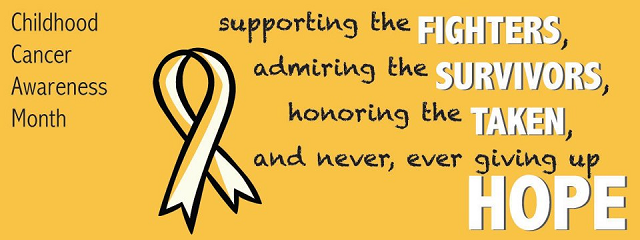Cancer isn’t the most exciting topic of discussion, but almost every person is affected by cancer to some degree. It’s time to become more aware of how to live a healthy life to reduce your child’s or your risk of getting cancer.
The good news is that more light is being shed on preventing children’s cancer throughout September, and hopefully long after that. There is an influx of information on lifestyle habits you can incorporate into your daily routine, and to keep the discussion as positive and enlightening as possible, we are here to sum them up and share them with you. It’s important to note that attitudes and habits formed in early childhood influence a person’s future health.
Here are a few things you can implement in your child’s early life to prevent cancer:
1. Get Your Kids Vaccinated Against HPV
The HPV vaccine protects against the types of HPV that most commonly cause cancer. Both boys and girls should start and finish the HPV vaccine series when they are 11 or 12 years old, but can start earlier at the age of 9. Teen girls and young women through 26 years, as well as teen boys and young men through 21 years, who haven’t started or finished the series, should get those shots as soon as possible.
2. Help Kids Keep a Healthy Weight
Childhood obesity has continued to rise over the past two decades. Children with obesity are more likely to have obesity as adults, which can lead to physical and mental health problems. A clear example is adult obesity, which is associated with a higher risk of type 2 diabetes, heart disease, and many types of cancer. See Tips for Parents for ideas to help your children maintain a healthy weight with healthy eating habits and regular physical activity.
3. Stay Sun Smart
Just a few serious sunburns can increase your child’s risk of skin cancer later in life. Follow the CANSA SunSmart campaign for tips on how to protect their skin from the sun whenever they’re outdoors.
Indoor tanning and tanning outside are both dangerous. Advise your children and teens against tanning.
4. Don´t ever smoke.
Kids look up to their parents and copy them. Never allow anyone in your family to smoke and don´t allow smoking in your home. Children, as well as adults, are damaged by secondary smoke.
5. Breastfeed longer.
With nine months at least – it builds their immune systems for life (and will also help protect mothers from breast cancer).
6. Tell them to eat their greens!
Cabbage, broccoli, watercress, cauliflower, kale: masses of vitamins and minerals and new research shows some vitamins, like vitamin K, are just no longer eaten in sufficient quantities by our youngsters.
7. Tell them to eat fruit!
One American study showed that those kids who didn´t eat fruit at all always went on to develop cancer later in life.
If you suspect your child might be growing ill, look out for these symptoms:
- Whitespot in the eye, new squint, sudden blindness or bulging eyeball
- Lump on the stomach, pelvis, head, arms, legs, testicle or glands
- Unexplained fever present for over two weeks, weight loss, fatigue, pale appearance, easy bruising & bleeding
- Aching bones, joints, back and easy fractures
- Neurological signs, a change in the walk, balance or speech, regression, continuous headaches with/without vomiting & enlarged head
However, should your child have cancer, there are things you can put in place to keep them comfortable and as healthy as possible advise by the Cancer Treatment Centre:
1. Maintain as normal a routine as possible.
Routines help children feel calm and safe. You may not be able to spend as much time with your children because of doctors’ appointments and your treatment schedule. Although, you can try to keep as many things the same as possible. There’s a great chance you may need to create a new routine that fits this cancer journey.
2. Maintain discipline.
Disciplining your children can be especially difficult during this time. You may feel guilty about it or that you don’t have the energy for it. Yet, a breakdown in discipline can send signals to your children that something is very wrong. Try to set consistent, familiar rules and reward good behaviour. Your children may behave badly because they are upset or are seeking attention. Let them know that you love and accept them, but not their misbehaviour.
3. Provide a sense of control.
Cancer can change the normal energy balance in your home. Try to give your children choices, such as what they would like to wear to school, etc. to help them feel more in control of their lives. Hold informal family meetings on a regular basis to update your children on how things are going. Allow friends and family to take over some household duties to maintain stability in the daily routine.
4. Seek counselling/support.
Let your children know they don’t have to face their illness alone. Arrange for them to speak with a counsellor individually or go to family counselling. In addition, a support group for children who have cancer can provide a safe place to share their feelings. A hospital social worker, nurse or psychologist may be able to recommend resources as well.
5. Have fun together.
Make an effort to have fun with your children. Activities can also help children use up excess energy and relieve anxiety. On days when you or your child don’t have a lot of energy, try reading, watching TV/movies, or doing artwork together. Share poems and songs that have special meaning to you both.
There is no easy way to handle and navigate childhood cancer, but it is important to remember to stay positive and monitor any changes in your child’s health. Let’s continue to educate ourselves on cancer prevention, as well as maintaining optimal health if your loved one has been diagnosed.
Sources:
Preventing cancer: http://www.who.int/cancer/prevention/children/en/


